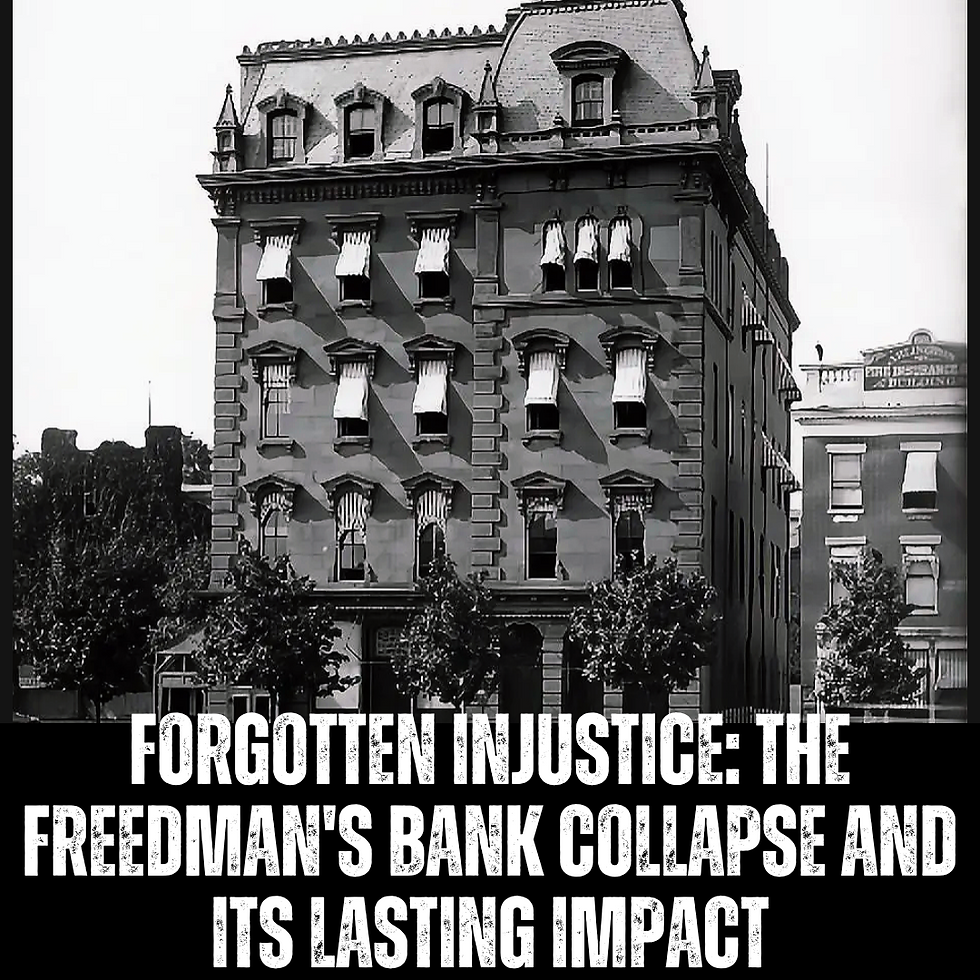
Forgotten Injustice: The Freedman's Bank Collapse and Its Lasting Impact
- Afrodescendant Ali

- Nov 9, 2024
- 2 min read
Forgotten Injustice: The Freedman's Bank Collapse and Its Lasting Impact #EconomicInequality #HistoricalInjustice #FinancialEmpowerment"
The echoes of history often reverberate through the corridors of time, leaving behind footprints that merge with the shadows of the present. One such forgotten tale, the collapse of the Freedman's Savings and Trust Company in 1874, stands as a somber reminder of the enduring economic disparities that continue to haunt us today.
In the annals of American history, the Freedman's Bank was envisioned as a beacon of hope for newly emancipated Black Americans seeking to carve out a piece of the American dream for themselves. Established in 1865 by white abolitionists, this institution was meant to provide a safe space for the accumulation of wealth and financial independence for those who had been shackled by the chains of slavery.
However, the dream turned into a nightmare as the bank spiraled into ruin, leaving behind shattered hopes and broken promises. The collapse of the Freedman's Bank was not merely a financial catastrophe; it was a betrayal of trust, a stark illustration of systemic injustice, and a testament to the insidious grip of white supremacy that pervaded the post-Civil War era.
Historian Justene Hill Edwards sheds light on this dark chapter in her new book, "Savings And Trust," unraveling the web of deceit and exploitation that led to the demise of an institution meant to uplift a marginalized community. The accounts of loss, of hard-earned savings vanishing into thin air, resonate with a haunting familiarity in today's world, where economic disparities continue to widen, and marginalized communities struggle for financial empowerment.
The legacy of the Freedman's Bank collapse serves as a stark reminder of the enduring consequences of historical injustices. It underscores the urgent need to address the deep-rooted inequalities that continue to plague our society, to confront the ghosts of the past that still cast their shadow on the present.
As we reflect on this forgotten injustice, let us not consign it to the dusty pages of history. Let us instead heed its lessons, honoring the resilience of those who entrusted their hopes to a broken promise, and striving to build a future where economic empowerment is not a distant dream but a tangible reality for all.
Let the tale of the Freedman's Bank be a call to action, a rallying cry for justice, and a testament to the enduring spirit of those who refuse to be silenced by the weight of history.





Comments